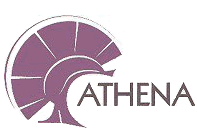All design work is documented using commonly available software
suitable for distribution over a LAN, and we would recommend the
use of a document repository. Software is predominantly
Microsoft Word, Visio and Excel. We recommend Visio is enhanced
by
Triaster's Process Navigator to ensure documentation cascades
are simple and efficient to maintain.
Process flowcharts are delivered in deployment format, so they
can be used for a variety of purposes, not just the initial
design (e.g. training & ongoing process improvement).
